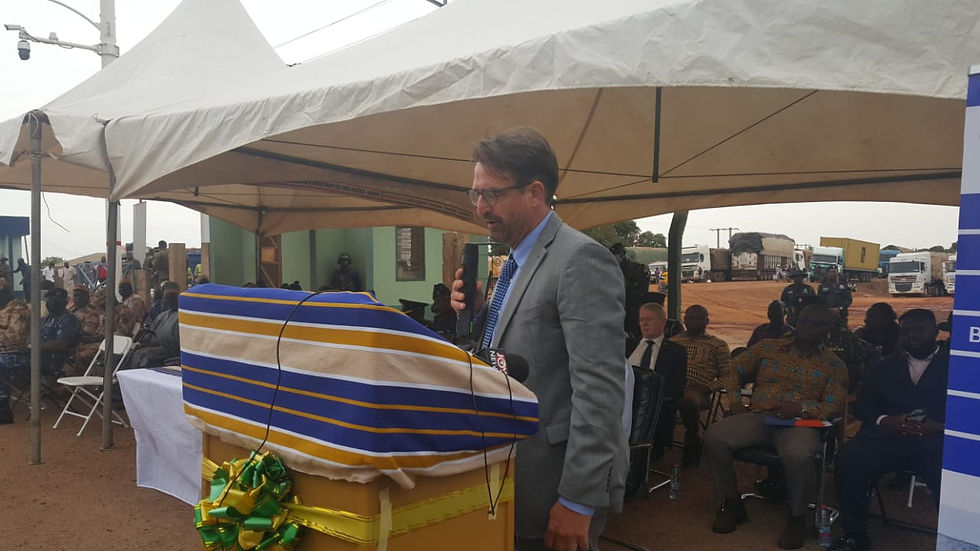
The Minister of the Interior, Mr Ambrose Dery, has underscored the dire need of collective responsibility of all stakeholders and efficient partnership between state governments in effective border border security management.
He said no government works in isolation hence the need for effective partnership between the governments of various states to achieve greater development.
Mr Dery was speaking at the commissioning of a renovated border post and newly constructed Water Sanitation and Hygiene (WASH) facility at the Hamile Border in the Lamabussie District.
The renovation and construction of the facility was a partnership between the Ghana Immigration Service (GIS) and the International Organisation for Migration (IOM) with funding support from the German Federal Ministry of Foreign Affairs and executed by the Deroyce Company Ltd.
Similar facility had also been constructed at the Kulugugu border in the Garu District of the Upper East Region.

The initiative was under the “Strengthening Border Security and Border Community Resilience in the Gulf of Guinea” project aimed to improve regional stability along the northern border regions of Benin, Côte d’Ivoire, Ghana and Togo.
Mr Ambrose commended the German Foreign Affairs Office and the IOM for the partnership with the government of Ghana in improving border management.
“This project, would contribute significantly to the fulfillment of this mission. No government works in isolation. It takes partnerships and support from other governments and institutions to achieve greater heights in development.
We fully appreciate that we cannot effectively manage migration unless the national and institutional capacities and infrastructure are strengthened and that is why the International Organization for Migration is committed to ensuring that the Ghana Immigration Service, and in particular the Hamile and the Kulungugu border posts, are primary beneficiaries”, he explained.

The Minister indicated that the installation of the Migration Information and Data Analysis System, (MIDAS) was timely as the government of Ghana was currently championing the Digital Ghana Agenda.
Madam Abibatou Wane-Fall, Chief of Mission, IOM, Ghana, Togo and Benin, reiterated the potential of the intervention to strengthen regional security instability and effective border management.
She explained that the efficient management of the borders of Ghana remained crucial for national and international security, but observed that gaps include inadequate infrastructure and equipment challenge the capacity of the GIS in managing the borders.
“Well documented historical and traditional challenges continues to affect the management of these borders, particularly, land borders.
“The existing network of land crossing points are confronted with inadequate infrastructure, equipment and as well as the phenomenon of numerous unofficial crossing points.
These gaps challenge the capacity of the Ghana Immigration Service to effectively respond to the facilitation and control of travellers and support to trade facilitation”, she explained.

Mr Daniel Krull, the German Ambassador to Ghana, observed that border security was important to the lives and development of people.
He, therefore, said the German government was happy to support the security improvement initiatives of the government of Ghana, adding that the German government had prioritized its partnership with Ghana and will continue to support Ghana in diverse ways.
Mr Kwame Assuah Takyi, the Comptroller-General of Ghana Immigration, indicated that the national security had made significant effort to increase collaboration in border management through partnership with the other governments.
He explained that there had been a training of trainers programme on the MIDAS for the GIS officer at the Hamile and Kulungugu borders to afford them a hands-on experience in the installation and administration of the MIDAS system.
“The installed Information and Data Analysis System will prove the state with the possibility to collect, process, analyse and share traveller information as well as support the digitization of migration data to improve traveller facilitation and control”, he explained.


Comments